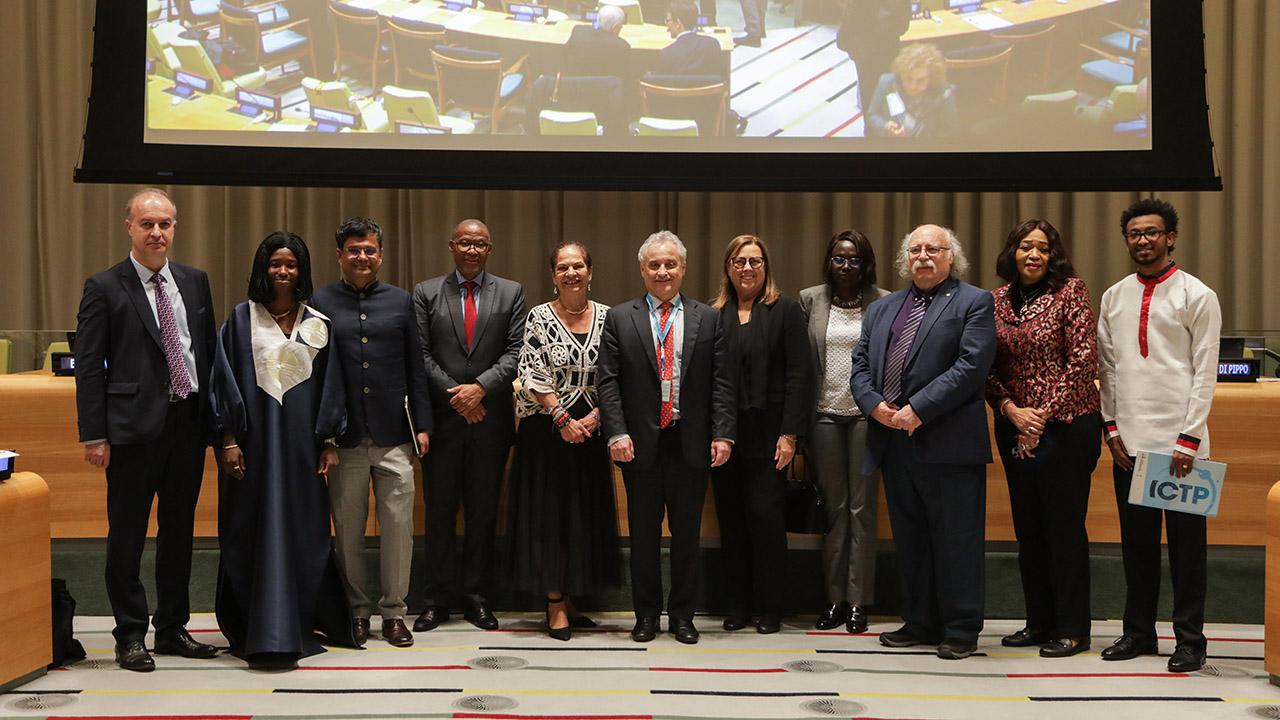
On Friday 9 May, ICTP’s 60th anniversary was celebrated at the United Nations’ headquarters, in New York. Some 200 representatives of the UN’s member countries attended the event “Advancing Global Scientific Cooperation for Sustainable Development: Leveraging Quantum Science for a Resilient Future” organised by the Permanent Mission of Italy to the UN and by UNESCO. The event also marked the 70th anniversary of Italy’s membership in the United Nations.
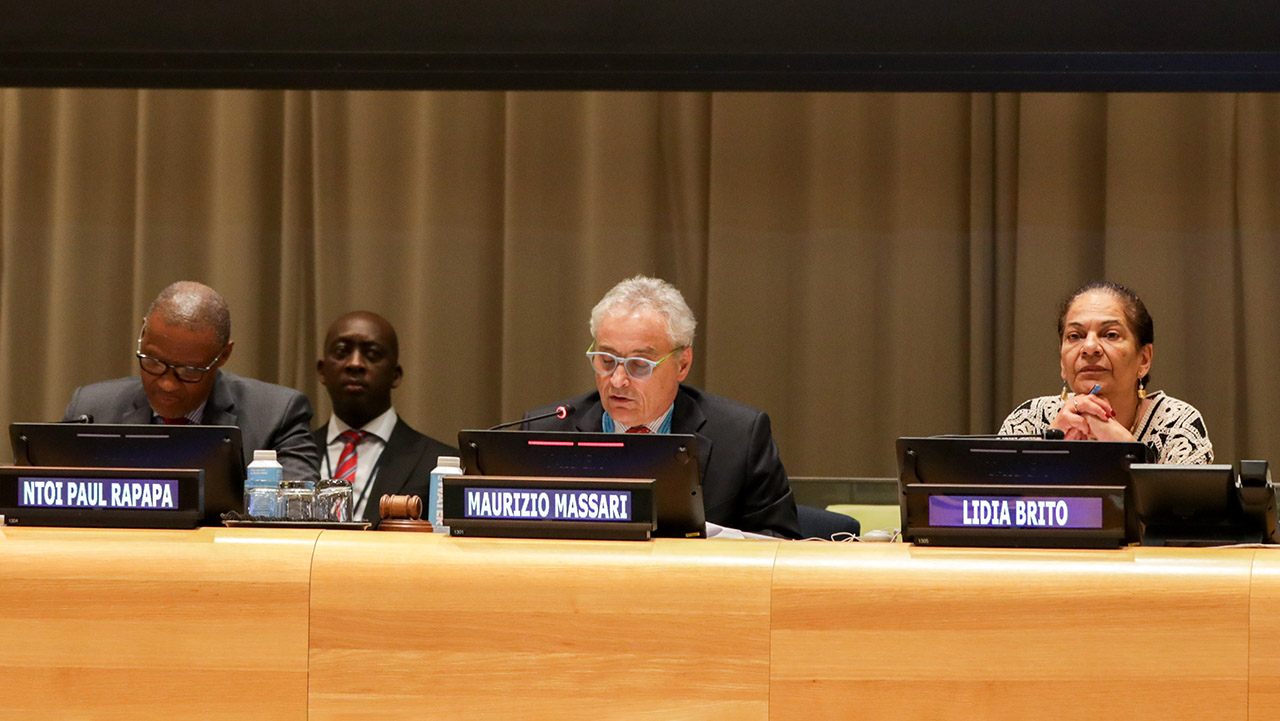
Ambassador Maurizio Massari, Italy’s Permanent Representative to the United Nations, opened the celebrations. “There is a profound sense of pride for Italy to serve as the host country of this extraordinary institution,” he said in his welcome remarks, and added, “The ICTP is more than just a centre for physics; it is a laboratory for international cooperation, a place where dialogue, exchange, and innovation flourish beyond borders.”
In her welcome speech, Lidia Brito, UNESCO Assistant Director-General for Natural Sciences, highlighted the importance of ICTP’s mission. “ICTP exemplifies UNESCO’s commitment to building scientific capacity, advancing open science, and nurturing global collaboration,” she said.
In a touching and personal testimony, Honourable Ntoi Rapapa, Minister of Education and Training of Lesotho, an ICTP Postgraduate Diploma graduate and a former ICTP Associate, talked about the impact that his time as a student at ICTP had on his life and career— “I am here working as a minister of education because of ICTP,” he said. He also highlighted how a scientific mindset and his training in physics have helped him throughout his career.
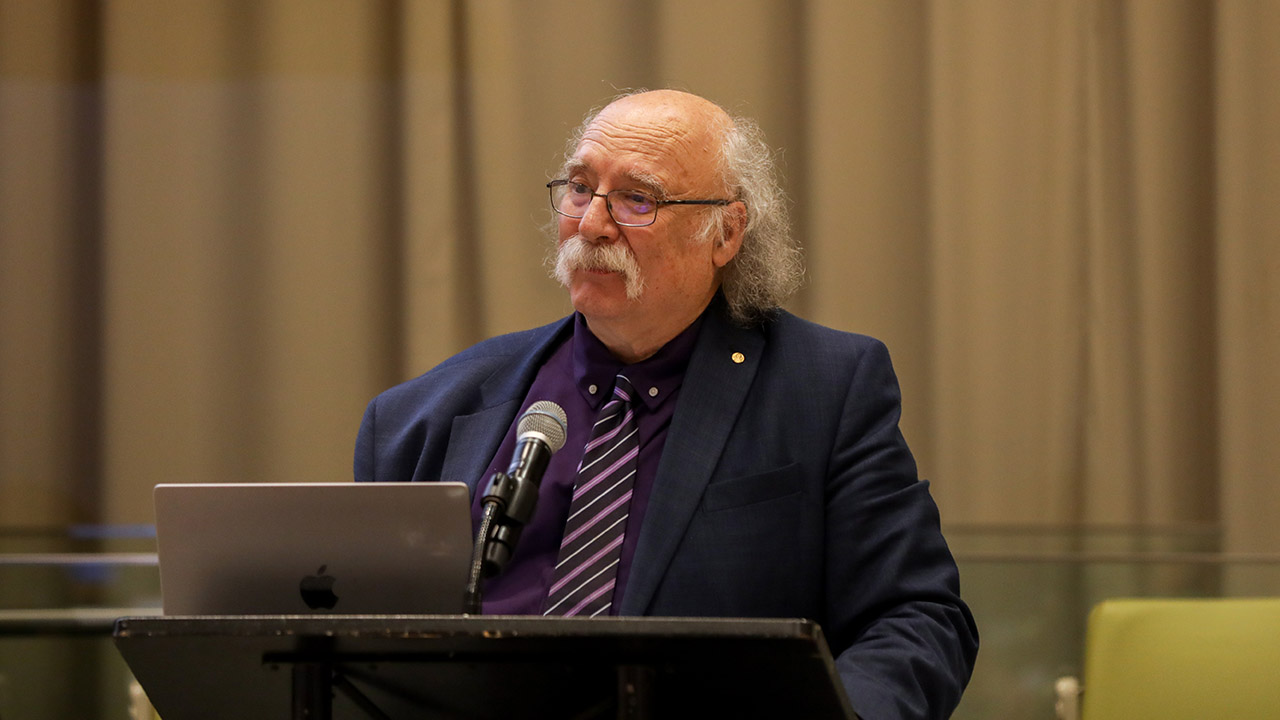
Duncan Haldane, a 2016 Nobel Laureate and a Professor at Princeton University, gave an inspiring keynote lecture stressing the importance of fundamental science, with a focus on quantum mechanics, celebrated by the International Year of Quantum Science and Technology initiative launched by the UN. Recounting his collaboration with Chinese physicist and former ICTP Research Scientist Yu Lu, at a time when China was just starting to open up to the Western world, he highlighted the role played by ICTP in bringing together scientists from across the world. In applauding UNESCO’s support for ICTP, he also stressed that sustainable development requires a strong scientific culture and goes hand in hand with scientific advancement.
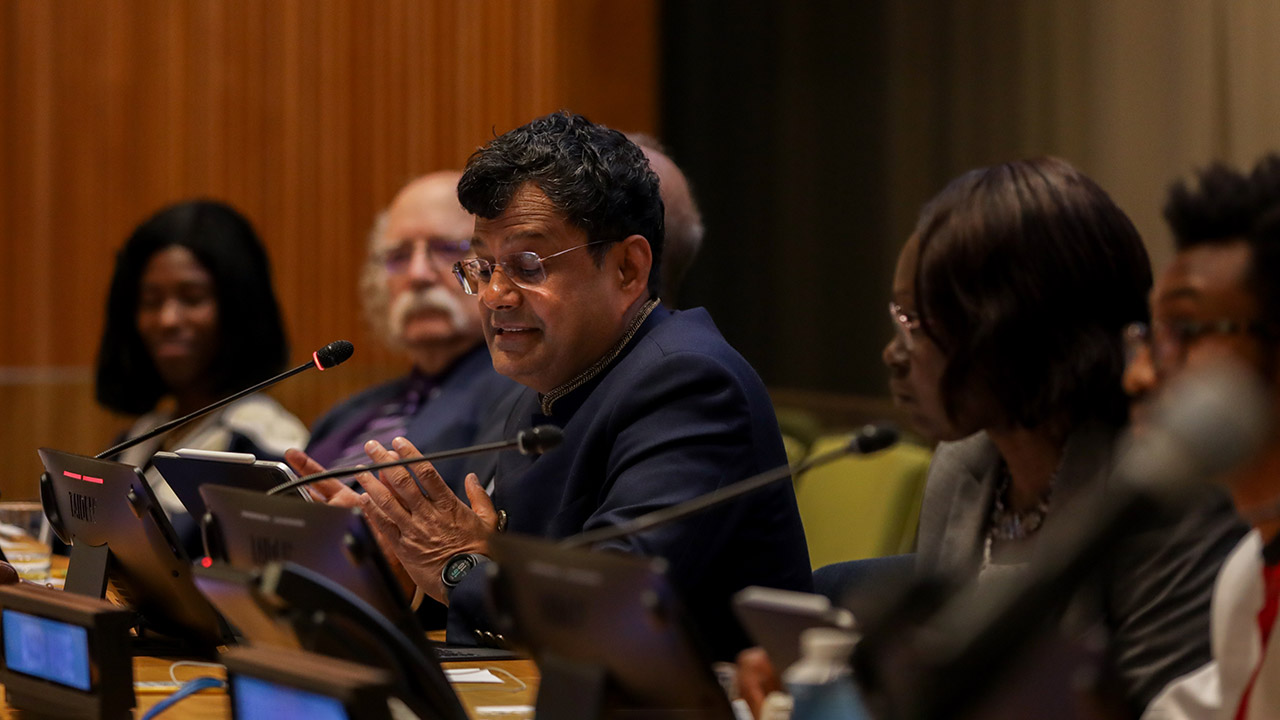
The lecture was followed by a panel discussion moderated by Simonetta Di Pippo, Professor of Practice of Space Economy and Director of the Space Economy Evolution Lab at Bocconi University, and involving Gregory Gabadadze, Senior Vice President for Mathematics and the Physical Sciences at the Simons Foundation, Aissa Wade, Professor of Mathematics at the Pennsylvania State University, as well as ICTP Director Atish Dabholkar.
Explaining how ICTP is working to expand global collaboration in science, particularly in support of scientists from developing regions, Dabholkar touched upon some of ICTP’s most recent initiatives, such as the International Science Alliance and the International Consortium for Scientific Computing (ICOMP), global partnerships involving institutional, academic and private partners joining forces to enhance and catalyse international collaboration at a truly global scale. He also stressed that the technological gap between richer and more disadvantaged countries can only be closed if technology transfer is accompanied by knowledge development – “Building a trained intelligence is far more important than technology”, he said, thus highlighting the relevance of ICTP’s mission in addressing these issues.
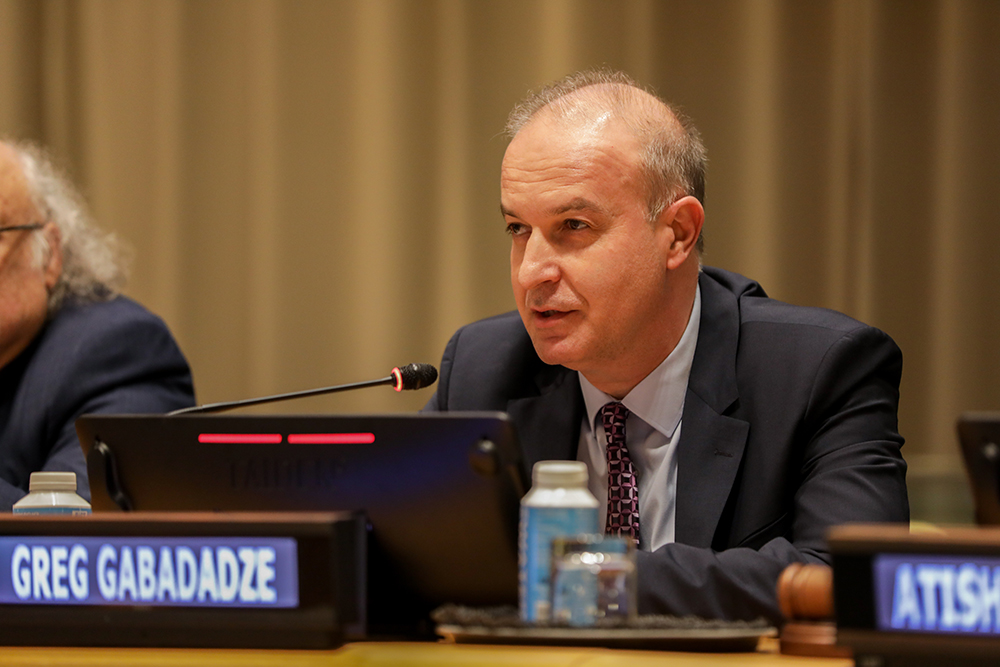
Gabadadze talked about the role of private funding in complementing public initiatives to advance quantum research globally. He also honoured the late James Simons, co-founder of the Simons foundation, and a great advocate of advanced science, including quantum science, who passed away one year ago and was a strong supporter of ICTP’s mission.
Wade, a mathematician from Senegal and a member of the ICTP Scientific Council, stressed how fundamental research, and particularly mathematics, is essential to unlocking the potential of quantum mechanics for sustainable development. “Agriculture in Africa requires better climate modelling and weather forecasting, which will help fight hunger,” she explained. “These fields will be improved by quantum computing, which relies on advanced mathematical algorithms,” she continued, adding that, as new fields of mathematics, such as quantum cryptography, quantum optimisation and quantum geometry, are born, all of them will eventually have an impact and contribute to addressing the UN’s sustainable development goals. Wade, who was a postdoc at ICTP between 1999 and 2000, concluded by expressing her gratitude to ICTP, recognising the impact it has had on her life and that of many other African researchers.
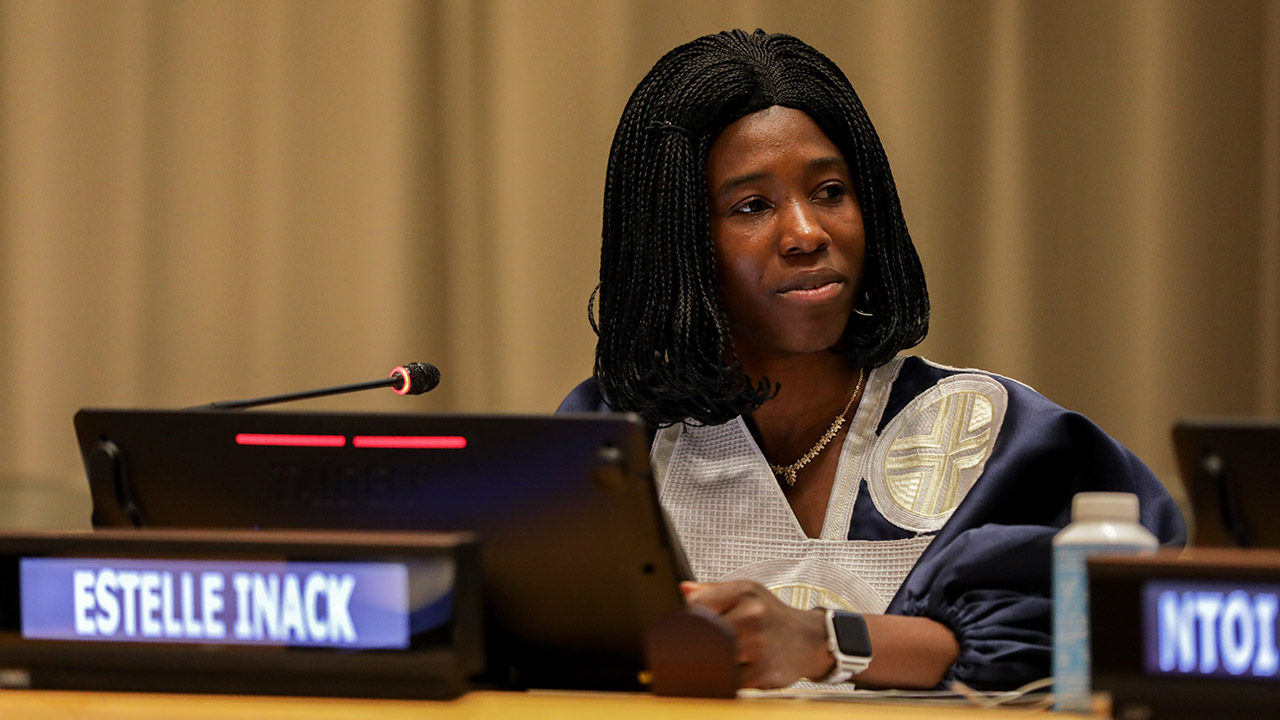
The panel discussion was followed by the testimonies of two recent graduates of the ICTP Postgraduate Diploma programme, Estelle Inack, co-founder of the start-up yiyaniQ and a research scientist at the Perimeter Institute, and Raji Ashenafi Mamade, a PhD student at the Massachusetts Institute of Technology (MIT).
Remembering her time at ICTP, first as a Postgraduate Diploma student and then as an ICTP-SISSA PhD student, Estelle Inack stressed how ICTP deeply impacted her life as a physicist and ignited her deep commitment to making science truly inclusive. “ICTP provided me with world-class training, a supportive community and a truly global perspective on research, elements that continue to shape the way I approach my work today,” she said. “Coming originally from Cameroon, where I completed my master’s in physics, I faced significant limitations in pursuing high-quality training and research opportunities due to limited infrastructure,” she continued, adding, “ICTP’s scholarship provided me with crucial support that opened doors to cutting-edge education in condensed matter physics and statistical physics”.
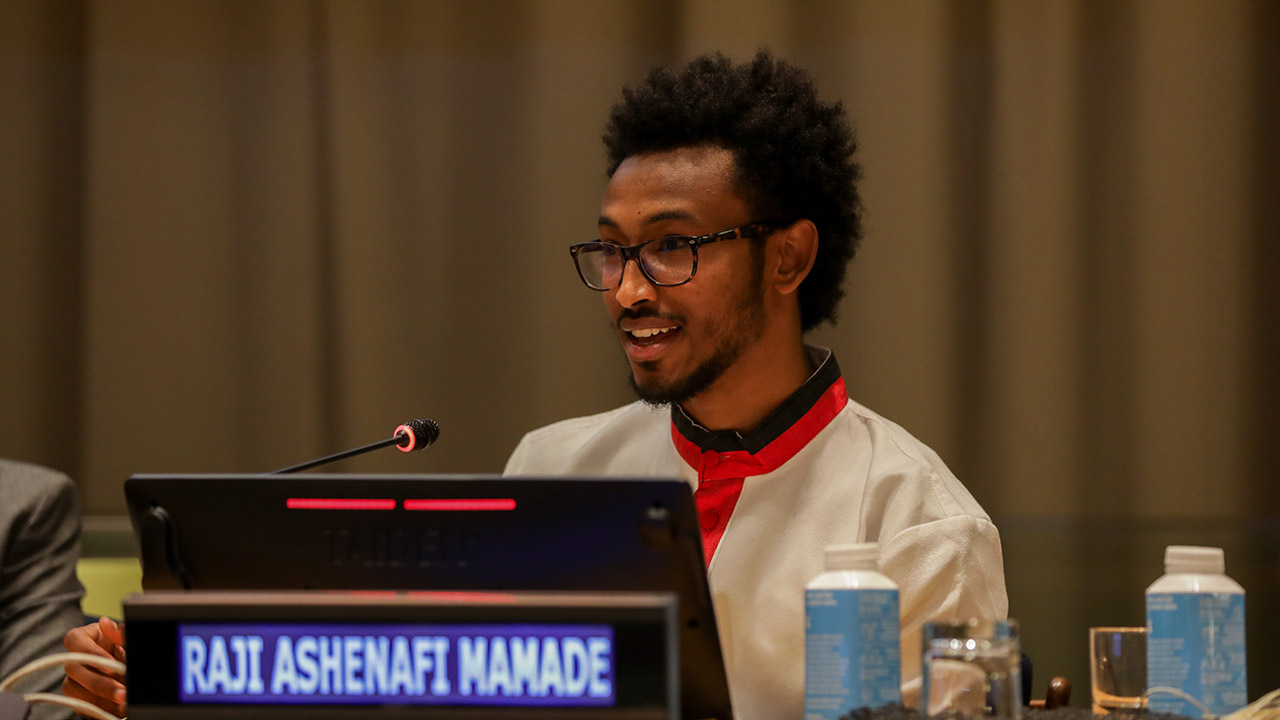
Mamade, a PhD student in theoretical physics, talked about his journey from Ethiopia to ICTP. “It was very difficult and scary, but what got me through and what I truly appreciated about ICTP is that the professors deeply believed in us and prepared us to be the next generation of scientists,” he said. Commenting on ICTP’s mandate to foster scientific cooperation globally, he added, “Science is not a zero-sum game. No one should be left behind. and we need as many people as possible to push the boundaries of knowledge further. We need global cooperation and the inclusion of as many voices and talents as we can bring to the table.”
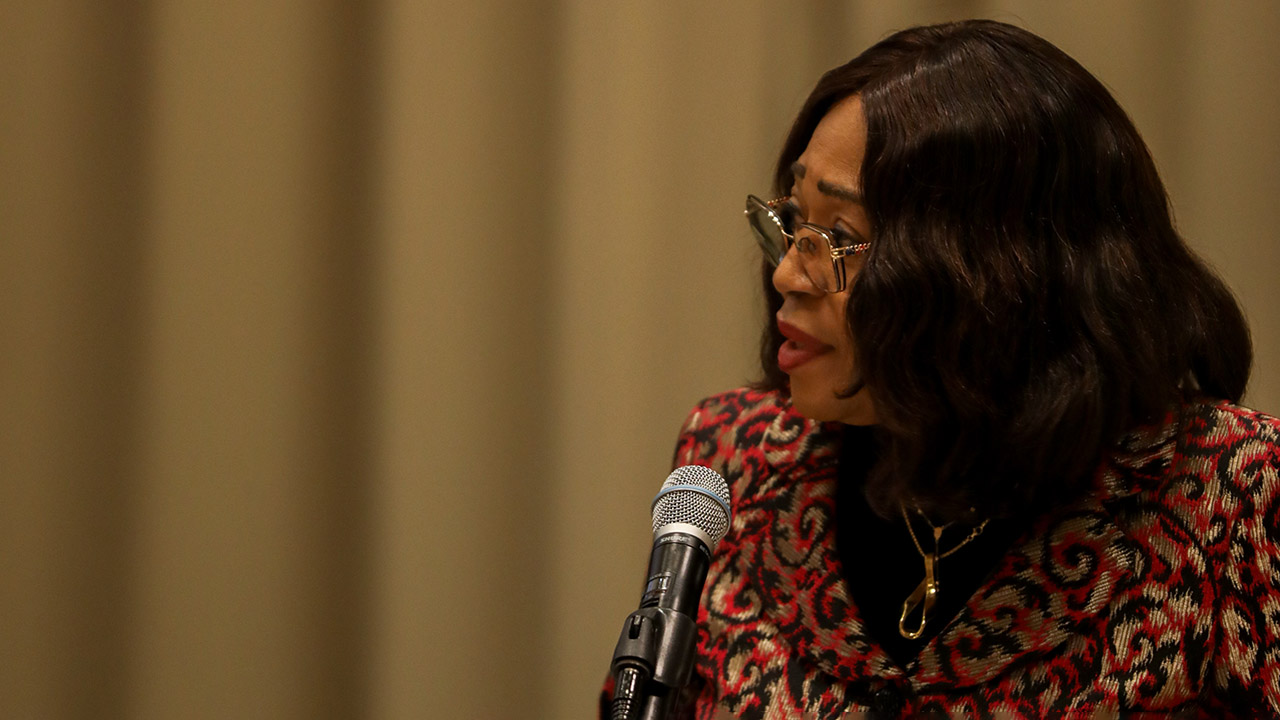
Vivian Okeke, Director of the IAEA New York Office and Representative of the IAEA to the United Nations in New York, delivered the closing remarks. “The IAEA takes great pride in taking part in the ICTP journey from the very beginning,” she said, “Today not only do we celebrate ICTP’s remarkable growth over 60 years, but also the enduring strength of the tripartite agreement between the IAEA, UNESCO and the Italian government, a partnership that continues to empower scientists worldwide.”
The recording of the event is available on the UN Web TV
Pictures of the event can be found on the ICTP Flickr album
















